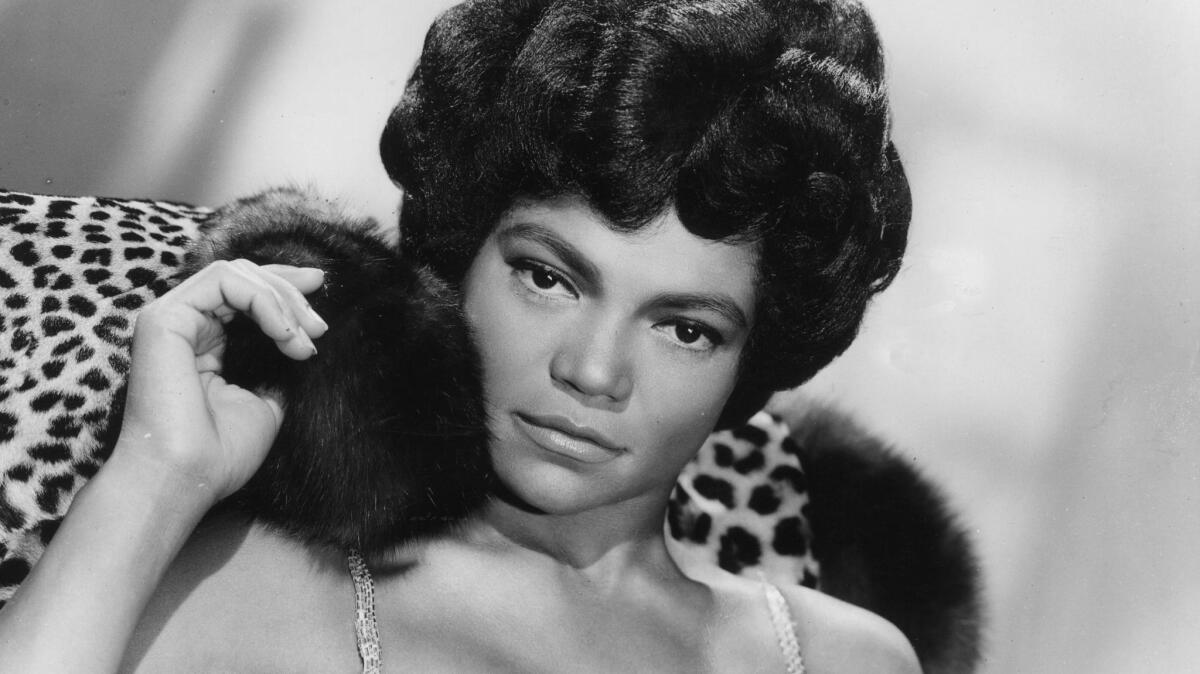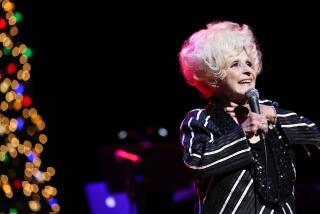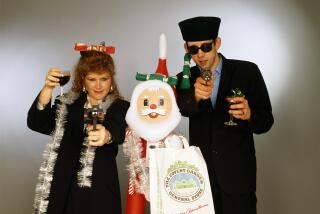Opinion: ‘Santa Baby’ wasn’t the only song censors deemed too risque for tender 1950s ears

- Share via
To the editor: Anyone too young to recall the 1953 debut of Earth Kitt’s iconic “Santa Baby” may not understand how it could have been widely banned, even if it intimated that the song’s narrator was the mistress of a gent wealthy enough to play Santa Claus. (“‘Santa Baby’ composer Phil Springer, 91, still can’t figure out why his sexy Christmas song endures,” Dec. 22)
But priggish 1950s censors scorned the Everly Brothers for far less suggestive lyrics. Their 1957 hit “Wake Up Little Susie” was famously banned in Boston.
The song’s teenage narrator and his girlfriend had gone to a movie, and found it so boring that they both fell asleep. They awakened hours later, well after the narrator was to get Susie home, and pondered how their innocent slip-up might raise their parents’ and friends’ suspicions:
“Well, what are we gonna tell your Ma-ma / What are we gonna tell your Pa? / What are we gonna tell our friends / When they say, “Ooh la la!”
In those prudish days, “ooh la la” evidently meant something too risque for Boston politicians to indulge. How times change!
Marta Tehrani, Santa Monica
..
To the editor: In the age of Harvey Weinstein, it seems pretty tone-deaf to put an article on a song that that is all about trading sex for stuff on the front page of the Los Angeles Times.
If the worst you can say is that it’s “coyly crass,” we have a long way to go in this conversation.
Victor Giudici, Aliso Viejo
Follow the Opinion section on Twitter @latimesopinion and Facebook
More to Read
A cure for the common opinion
Get thought-provoking perspectives with our weekly newsletter.
You may occasionally receive promotional content from the Los Angeles Times.





